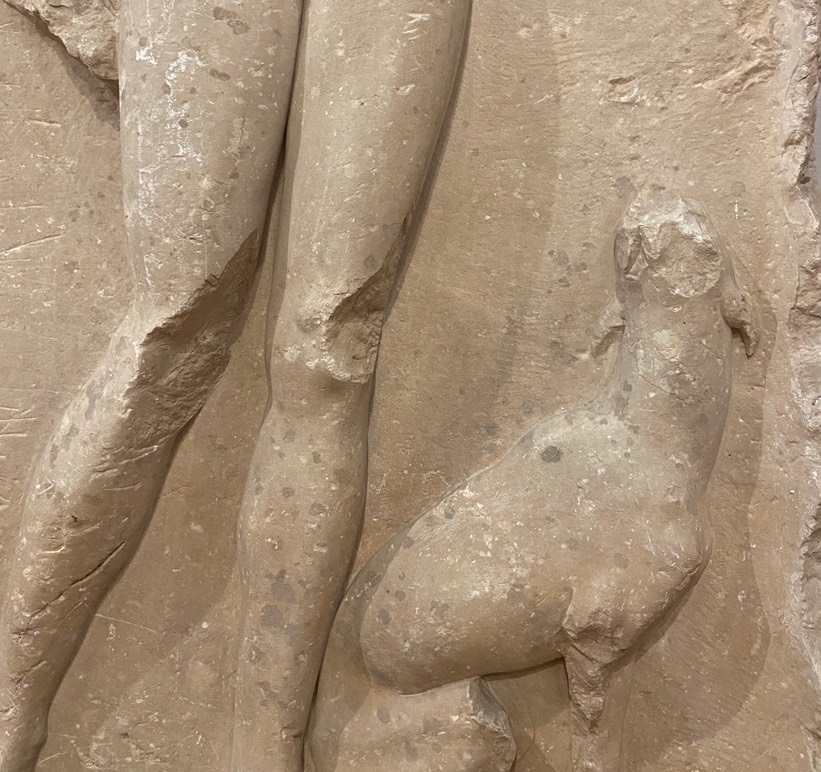
PROGRAMME “AROUND THE SHELF” CURATED BY EIRINI FOUNTEDAKI
Collective reading as practice
Although we perceive reading as primarily a solitary activity, for most people throughout history communal reading, that is to say reading aloud with others, has been the norm. Books have had audiences rather than readers. For example, Eric García-Mayer describes oratorial reading among Cuban literary exiles in the United States in the nineteenth century and Elizabeth McHenry investigates African-American reading societies in the twentieth century.[1] The labour of reading could be shared, acting as a catalyst for creating communities; it can even be the remedy in times of hardship, or it can shape new alliances amongst a newly-formed group of readers/listeners.
The programme Around the Shelf is a series of monthly gatherings, bringing together various practitioners across disciplines as facilitators for collective reading processes. Through these gatherings, we will be imagining what reading together can manifest. Reading groups have been historically one of the many tools that various feminist groups utilized as a way to create an empowering and safe environment for their communities. Echoing the feminist practice of giving voice to the voiceless,[2] this series of monthly gatherings invites guests from activism, literature, and visual arts, intending to create empowering and safer spaces for feminist and queer discourse.
Slowing down fast
The methodologies that will be employed aspire to establish a slower temporality of reading, inspired by the notion of Slow down fast, A toda raja[3] as articulated by Camila Marabio and Cecilia Vicuña. In their conversation, Marabio and Vicuña propose to slow down at full speed,[4] feeling a collective pulse as an antidote to the contemporary condition in Chile based on neoliberal monetary and currency policies and colonial oppression. Slowing down processes of reading defines the spirit of Around the Shelf, to develop slow, collective reading methodologies. The gatherings will not require prior preparation, as the group will be reading out loud excerpts from poems, essays, film scripts, artist books, amongst others, and stopping at every sentence or paragraph to reflect and brainstorm together.
When reading with others, we are becoming one whole collective reading body. As Marabio & Vicuña put it, “you are losing your Self and subtracting your-self from the continuity of an existent structure …the thinnest existence of a possible assurance of an “I” gets lost.”[5] It is this entry into a collective consciousness that this series aspires to explore, inviting us to become collective readers and listeners.
To listen with all our senses
Reading in institutions and academia comes with some sort of silence. Library spaces dictate a sonic order, amongst other things, and thus a specific way of approaching texts. How can we bring printed words to life by activating our senses? When reading this out loud, we become listeners of our voice or the voices of others; our ears slowly get used to different accents, timbres, and vocal tones. We can think of listening as a sonic correspondence of reaching out voices which are reflected to our ears; echoes of different subjectivities that move through space by means of sound. Considering the limitations of academia and institutions in relation to active listening and shared living experiences, this programme brings together sound practitioners and performers as facilitators for reading-listening sessions.
Take I with Deniz Kirkali, Thursday 9th November 2023, 8pm
This session, led by independent curator Deniz Kirkali, will initiate a series of collective readings, focusing on attentivity as a methodology for learning from and with others. Directing the attention to the body, this gathering will use material feminisms and posthuman studies as a grounding base for collective explorations on the “arts of noticing”, as articulated by anthropologist Anna Tsing. Deniz will introduce us to practices of attuning through examples from her curatorial work, speculating how we can live, work, feel, and experience differently. The group will also develop a slow reading methodology to delve into excerpts from Bayo Akomolafe’s writings, which call us to attune to the “wisdom of soil”. Drawing inspiration from alternative narratives, how can we challenge our entanglements with the all-living world, and challenge epistemological power?
Duration:
9th November 2023 – 13rd June 2024
Set dates & time:
Every second Thursday of the month (unless indicated otherwise) at 8pm
Curator:
Eirini Fountedaki*
Guests:
Federica Bueti, Vassilia Kaga, Deniz Kirkali, Danae Stefanou and others (tbc)
TAVROS
Anaxagora 33 (1st floor), 17778, Tavros, Greece
*Eirini Fountedaki is SNF Curatorial ARTWORKS Fellow 2020
[1] Eric García-Mayer, “Narrating Nation Aloud: Oratory, Embodied Reading Practices, and the Cuban Imaginary in Villaverde and Mariño’s El Independiente, “Folklife in Louisiana: Louisiana’s Living Traditions”, 2013, http://www.louisianafolklife.org/LT/Articles_Essays/lfmnarrating.html, accessed 15 October 2023; Elisabeth McHenry, Forgotten Readers Recovering the Lost History of African American Literary Societies, Durham, NC: Duke University Press, 2002.
[2] Samia Malik in “Reading as Activism: the WOCI Reading Group” in Shelf Documents: Art Library as Practice, ed. Heide Hinrichs, Jo-ey Tang, Elizabeth Haines, Antwerp: Pascale De Groote, 2000.
[3] Camila Marambio and Cecilia Vicuña, Slow Down Fast, A Toda Raja, Berlin: Errant Bodies Press, 2019.
[4] “A toda raja” is a Chilean expression with multiple colloquial uses. It can mean at full speed, intensely or with great sentiment. See Marambio and Vicuña, Slow Down Fast, A Toda Raja, 5.
[5] Marambio and Vicuña, Slow Down Fast, A Toda Raja, 10.